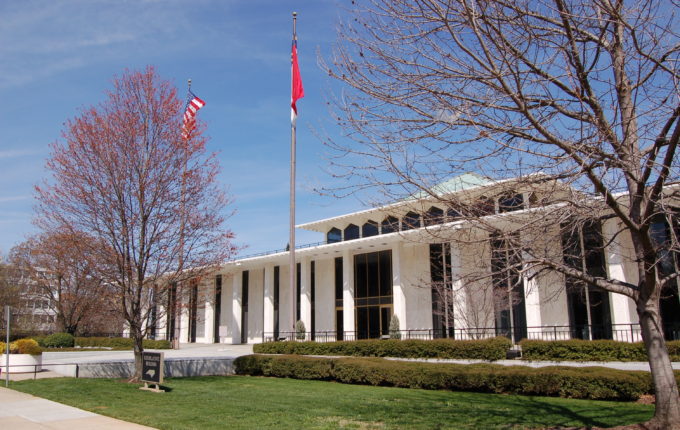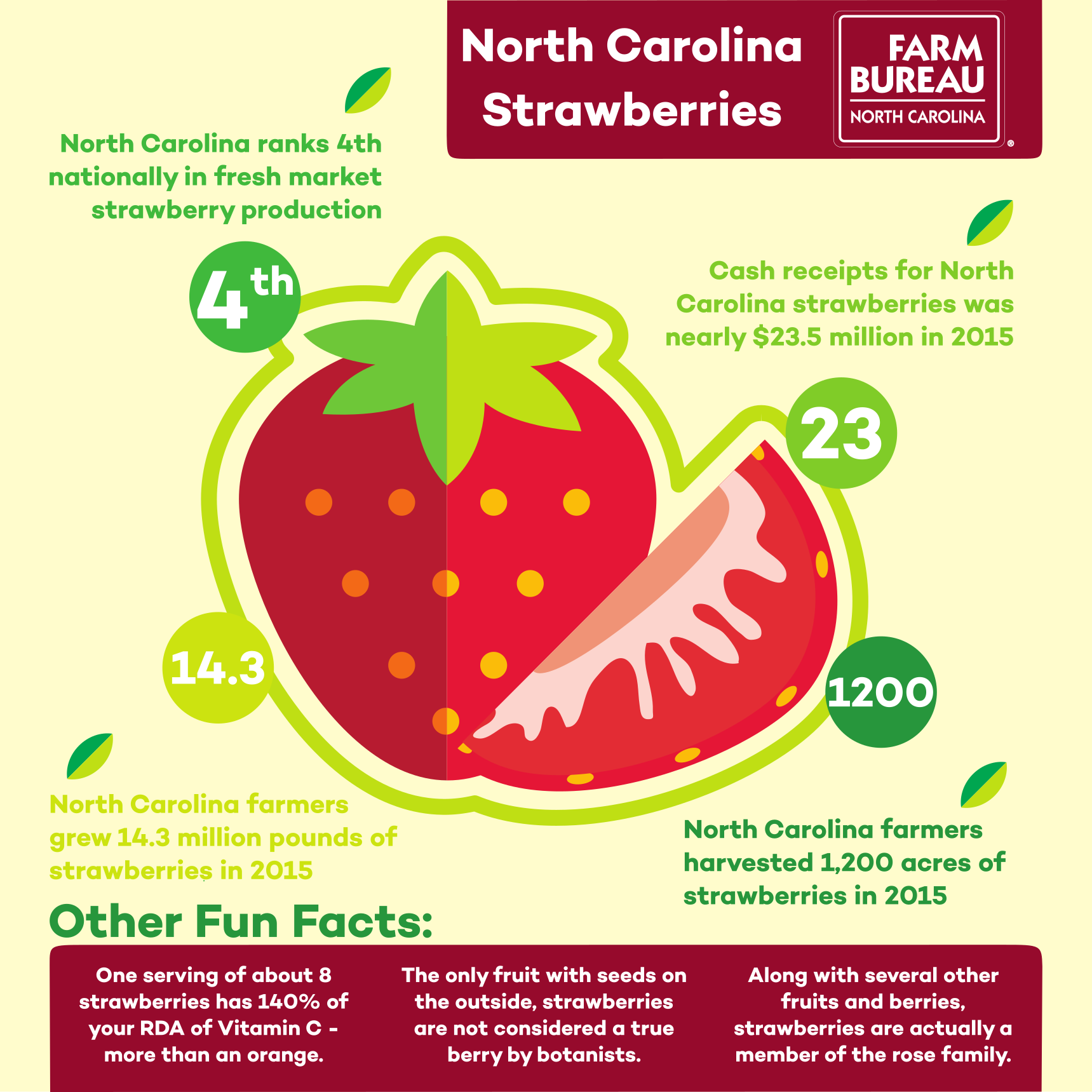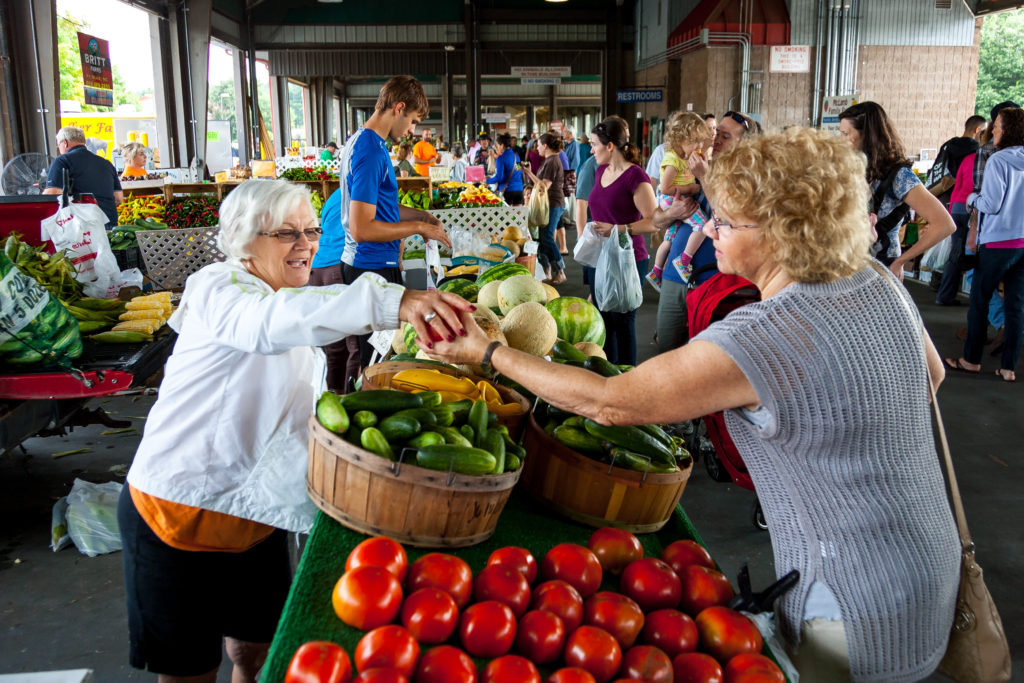The NC General Assembly adjourned (again) a couple weeks ago, and with November officially upon us it’s probably as good a time as any to put a bow on this year’s legislative session. Overall, it was a good session for North Carolina agriculture, with the General Assembly enacting several important measures to help farmers. Today, we want to give you a quick overview of a few key legislative actions.
 Farm Life
Farm Life
When Mike Smith enters a livestock barn in North Carolina, whether a county fair or the NC State Fair, you would think he was a local celebrity. Truth be told, to many of those who participate in NC livestock events, Mike IS a local celebrity. There’s no shortage of families that offer seating, snacks, and most importantly, hugs to a kindhearted man that has become extended family to those in the barn.
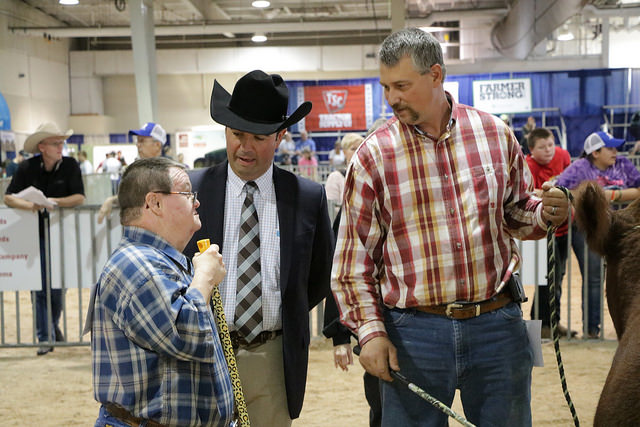 On Sunday, October 15, 2017, Mike’s celebrity status reached an all-time high, with his induction into the NC State Fair Livestock Hall of Fame. While most of the Hall of Fame inductees are lifetime breeders or financial sponsors, Mike, along with Mrs. Carol Turner, were selected for their roles in establishing a NC State Fair Competition that, for many years, was unique to our state – the NC State Fair Special Awards Livestock Show.
On Sunday, October 15, 2017, Mike’s celebrity status reached an all-time high, with his induction into the NC State Fair Livestock Hall of Fame. While most of the Hall of Fame inductees are lifetime breeders or financial sponsors, Mike, along with Mrs. Carol Turner, were selected for their roles in establishing a NC State Fair Competition that, for many years, was unique to our state – the NC State Fair Special Awards Livestock Show.
Mike is unlike any Hall of Fame Inductee before him; he was born with Down syndrome, a genetic disorder classified as a disability in the United States. But what some see as a disability, Mike never saw as a hurdle, and neither do those who love him. He has an amazing mind for numbers, loves children, and has always enjoyed being around livestock and fairs
In the late 1980s, Mike began traveling with his nieces as they competed in livestock events. While at those events, Mike’s job was to pick up manure from behind the cattle! When you heard Mike yell “PHONE CALL,” you knew it was code for ‘an animal left behind a pile of manure to be picked up.’ And you didn’t dare try to do it yourself – it was Mike’s job, and he was good at it!
In the mid-90s, Mike began to ask why he wasn’t able to show when he traveled with, assisted, and watched his nieces enter the ring time after time. So, several county fairs would allow Mike to walk an animal through the ring before the shows started. But the NC State Fair was different – it was big, it was busy, and it didn’t have time to let one person walk through the ring.
 Farm Life
Farm Life
When someone asks, “if you could, would you go back to high school?”, most of the time my answer would be a resounding no. Personally, high school was an awkward time. I wanted to talk livestock, not watch the Friday night football game. I spent weekends at county, regional, and state fairs instead of at slumber parties. The ONLY reason I would consider going back would be because that is the age of eligibility for youth livestock programs. Not to mention, that age would mean participation at my favorite place on earth – the NC State Fair.
The 2017 North Carolina State Fair kicks off tomorrow, and by the time it wraps up on October 22nd more than a million people will wander the fairgrounds playing games, riding rides, and eating all sorts of food. This year marks the 150th state fair, and it’s safe to say those first fairgoers back in 1853 might feel like they’re attending a completely different event.
Like them, the State Fair I know isn’t filled with flashing lights, whirling rides, and a plethora of deep fried foods. The fair I know revolves around livestock – hogs, sheep, cattle, goats, poultry, OH MY! The first weekend of the State Fair focuses on youth market animals (meat breeds), exhibited by youth under 21.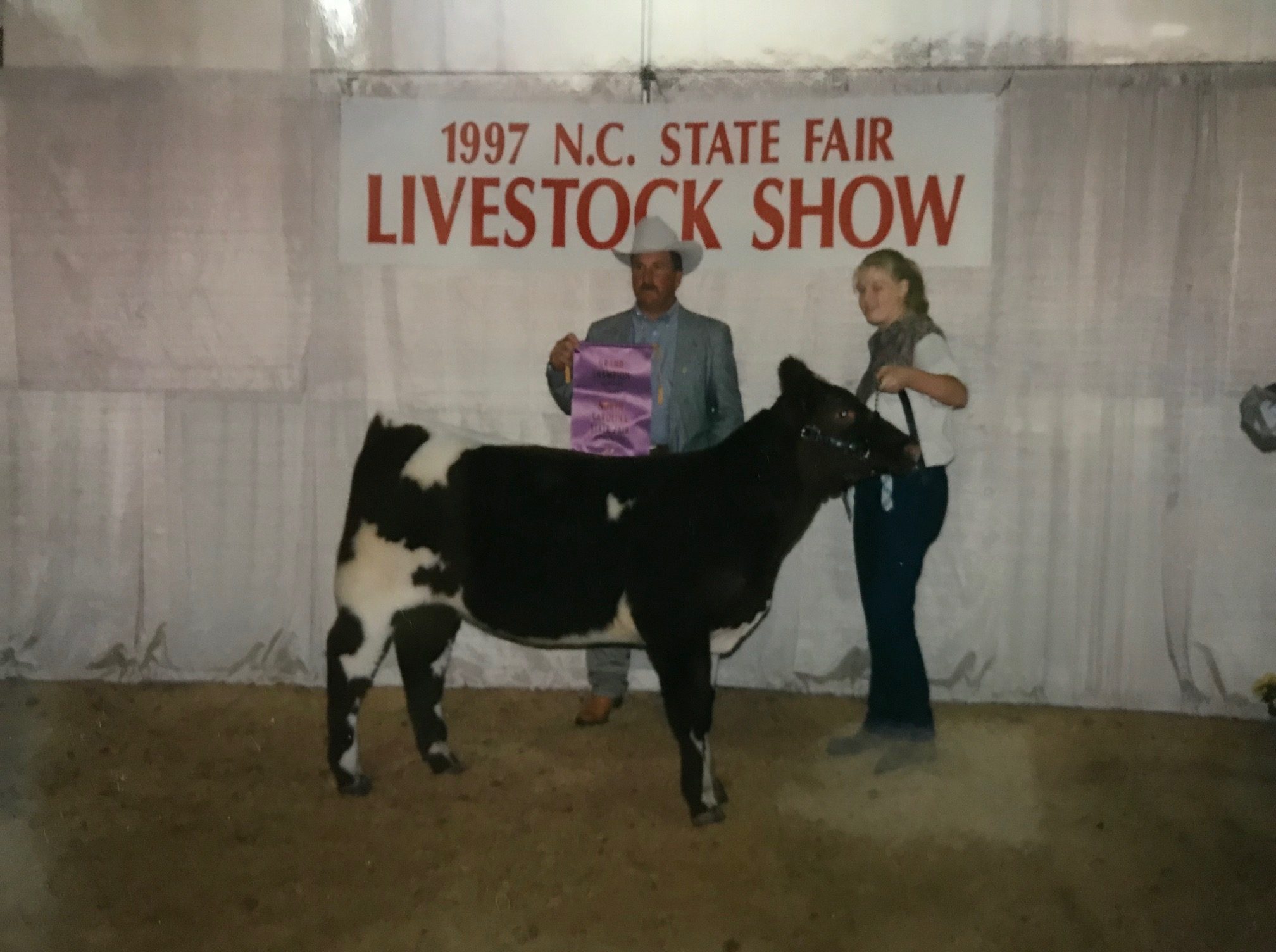
For the youth from across the state, the State Fair is the culmination of the year’s work. The county and regional fairs in the spring, summer, and fall are all leading up to the State Fair. It’s like training for a big marathon – there are smaller races throughout the year to build stamina, discipline, and muscle. The smaller race placings are icing on the cake, but the goal is the big one. And folks, the State Fair is the big one.
The following commentary is by North Carolina Farm Bureau President Larry Wooten, first published in the Fall 2017 issue of NC Field and Family.
Initiatives for rural transportation, energy and broadband internet will benefit the state economy
North Carolina’s rural transportation, energy and broadband internet infrastructures are as important to economic development as seed, sun and water are to crops. Economic development is vital for the future of our farmers, rural communities and the population of the entire state.
There is no single “cure-all” for the ailing economies of many rural counties, but these areas have the potential to contribute an additional 38,000 jobs and $10.3 billion to the state’s annual income over a decade, according to a 2014 study commissioned by the NC General Assembly.
Because of this potential, the North Carolina Food Manufacturing Task Force was established April 9, 2015. The Task Force seeks to boost the rural economy with a world-class food processing industry.
The quality of roads and bridges tops the list of infrastructure needs that have a direct impact on the economic viability and quality of life in our rural communities. TRIP, a national transportation research group, recently reported, “North Carolina’s rural roads have high rates of fatalities, bridges show deficiencies; the state’s rural transportation system is in need of modernization to better support economic growth and connectivity.”
The Federal Communications Commission’s 2016 Broadband Progress Report stated that 10 percent of all Americans lack access to high-speed broadband service, while 39 percent of rural Americans lack access. By contrast, only 4 percent of urban Americans lack access.
Affordable electricity and access to natural gas are also crucial for economic development. The Atlantic Coast Pipeline will provide natural gas to the rural utilities that need it to serve their communities, and is estimated to lower energy costs for consumers and businesses while contributing an estimated $28 million in annual property taxes to local governments.
Agriculture is a crucial component of future economic development in rural North Carolina through the creation of value-added processing jobs and economically symbiotic small business.
Diverse agriculture, combined with an improved infrastructure, can result in the state emerging as a global food leader. State and federal funding, along with private investment, is required to make infrastructure investments that ensure our rural communities have roads that are well-maintained, energy that is affordable and broadband internet that is accessible.
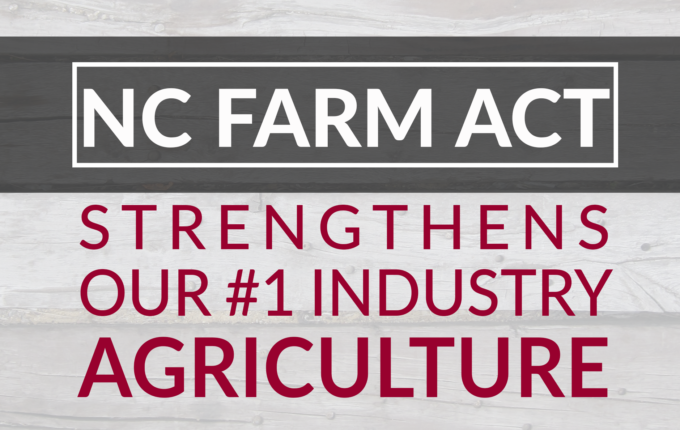 State Government
State Government
Stick with us here. Most people probably understand the wisdom, or can at least appreciate the purpose, of maintaining your home. Over time your home gets cluttered, things break, and some of those deep, dark corners you never visit have to be dealt with. It’s not always a fun job, but doing it can make your home a more enjoyable place to live.
North Carolina’s statutes, just like a home, require ongoing maintenance. So it’s necessary, on occasion, for the Legislature to take a look at our statutes and clean up some of the confusing, unhelpful, and out-of-date provisions.
That’s where the annual Farm Act comes into play. Each year since 2013 state legislators have passed a Farm Act to make necessary changes to the law to better serve North Carolina’s farmers.
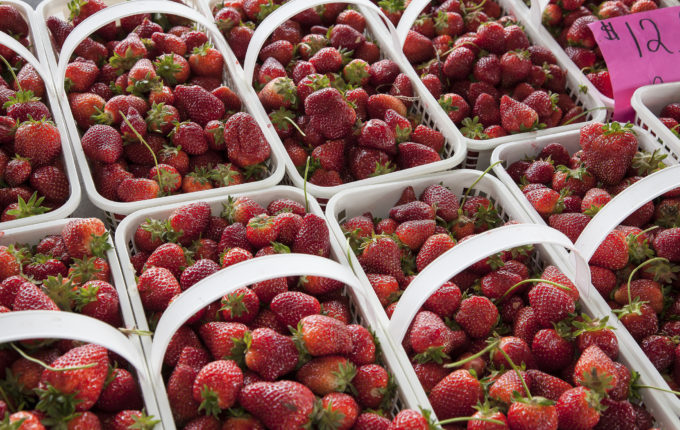 Economy / Food
Economy / Food
There’s nothing quite like the taste and smell of fresh strawberries to usher in warm weather and blue skies in North Carolina. And we’re right smack in the middle of the strawberry harvest, which typically runs from mid-April through late May, so there’s no better time to head to a local farmers market, roadside stand, or pick-you-own site to scoop up a few buckets. In fact, the NC Strawberry Association has partnered with the NC Department of Agriculture and Consumer Services, NCDA&CS Farmers Markets, and the NC Dairy Promotions Committee to host Strawberry Days at the farmers market. Here are the details:
- State Farmers Market (Raleigh): Thursday, May 4th from 11am – 1pm
- Robert G. Shaw Piedmont Triad Farmers Market (Colfax): Friday, May 5th from 11am – 1pm
- Charlotte Regional Farmers Market (Charlotte): Friday, May 12th from 11am – 1pm
North Carolina is one of the nation’s largest strawberry producers, and unlike other top states, most strawberries grown here are sold here — fresh, flavorful, and juicy. So in honor of one of the most delicious times of year, today we’re going to pay tribute to the North Carolina strawberry industry.
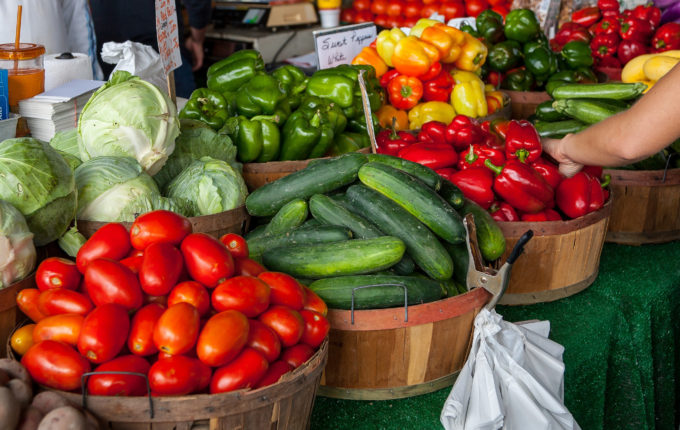 Food
Food
Now that spring has officially sprung, there’s no better time to support North Carolina agriculture by heading to your local farmers market or roadside stand to do a little grocery shopping. You’ll find fresh, local, and delicious produce without breaking the bank — in fact, you might even find some items are cheaper! Plus, you’ll get the chance to talk with local farmers and find out more about the food you’re buying.
 Politics / State Government
Politics / State Government
Ask most farmers and they’ll probably tell you they don’t like taking days off the farm. The job demands a lot of time and attention, and it’s critical that farmers stay on top of the day-in day-out tasks (like covering strawberries before a freeze) that lead to a successful year. But today, hundreds of dedicated farmers and friends of agriculture from communities all across the state have left their farms to do another kind of work—meeting with their legislators. That’s because today is NC Agriculture Awareness Day, a day for farmers and ag leaders to bring awareness to the legislature about the importance of agriculture in North Carolina. And it’s an essential task too; with so few legislators involved in agriculture, today’s rally is a valuable opportunity to help legislators understand the challenges that farmers face.
So what are some of those challenges farmers will be discussing with their legislators? Ask ten farmers and you might get ten different answers, but there are a few themes that rise to the top. This year, the key messages that Farm Bureau members will be delivering are:
Hurricane/Wildfire Recovery
- Last year, the legislature appropriated $200 million in hurricane/wildfire relief.
- But even though we’re many months removed from those disasters, many NC farmers are still recovering.
- We support additional disaster relief funding during appropriations process.
Preserve Present Use Value Program
- The Present Use Value Program provides qualifying farms with property tax relief by taxing the land based on its present use (farming or forestry) and deferring market value taxes.
- This helps farms continue production and preserves farmland.
- We support the preservation of this vital tax program.
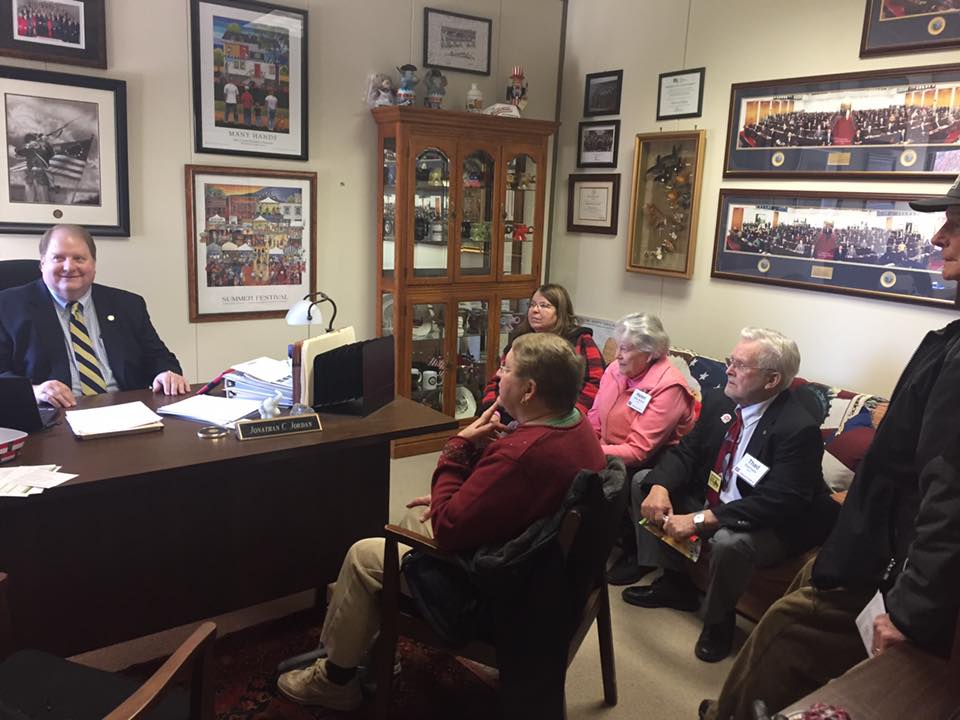 Preserve Ag Sales Tax Exemptions
Preserve Ag Sales Tax Exemptions
- Eligible farmers are exempt from sales tax on farm equipment, inputs, and services.
- This helps prevent double taxation on farm products and products derived from agriculture.
- The legislature should maintain these exemptions if tax reform legislation is considered.
Healthcare Costs
- Most farmers purchase health care in the individual market because they are often small businesses or sole proprietorships that don’t have access to group coverage.
- Farmers are bearing the brunt of significant health insurance increases and struggle with inconsistencies in premium subsidies.
- Farmers are also dealing with a sluggish ag economy and disaster recovery, further cutting into their bottom line.
- Legislators should work to keep health care costs down.
North Carolina Agriculture is not only our state’s largest economic driver but it also supports more than 600,000 jobs—about one out of every six in the state. That’s why it’s important that legislators are kept up to date on ag issues; because if ag is hurting, then so is our economy.
NC Farm Bureau would like to thank all of the legislators who take time to meet with our farmers and hear their concerns.

